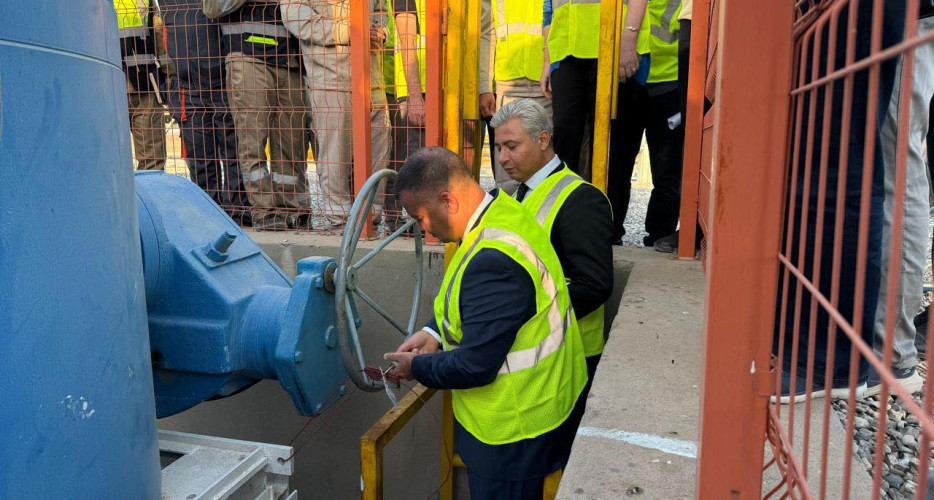
Peregraf
For the first time in two and a half years, oil from the Kurdistan Region flowed again this morning through the pipeline to Turkey’s Ceyhan port, marking a significant breakthrough in energy and political relations between Erbil and Baghdad.
A source from the Kurdistan Regional Government’s (KRG) Ministry of Natural Resources told Peregraf that "the oil was exported successfully without any problems and has reached Turkish territory. It will arrive at Ceyhan port and the international market today."
The source added that the Region is exporting nearly all of its current production—about 240,000 barrels per day—while reserving 50,000 barrels for domestic consumption.
Watch now as the #Kurdistan Region's #oil pipeline is unlocked, signaling the immediate resumption of oil exports to Turkey's Ceyhan port. SOMO (Iraq's State Organization for Marketing of Oil) is overseeing this critical restart. pic.twitter.com/F1q34XcPud
— Peregraf (@PeregrafNews) September 27, 2025
A Historic Deal
Exports were halted on March 25, 2023, following an arbitration ruling in favor of Baghdad against Ankara over the Iraq-Türkiye pipeline. The stoppage deprived the Kurdistan Region of vital revenues and cut roughly 230,000 barrels per day from global markets.
After dozens of negotiations, Erbil, Baghdad, and international oil companies reached what both the Iraqi federal and Kurdistan regional governments described as a "historic agreement."
Under the deal, crude oil produced in the Kurdistan Region—except for locally consumed volumes—will be handed over to Iraq’s State Oil Marketing Organization (SOMO) via the North Oil Company at Peshkhabour. From there, it will be exported through Ceyhan and sold to international buyers, with revenues deposited into the federal treasury in Baghdad.
The agreement consists of six articles and a preamble defining rights, obligations, and entitlements. Kurdistan’s salaries and other dues will be funded directly from this revenue.
1/4
— Peregraf (@PeregrafNews) September 27, 2025
🚨 Statement from the Iraqi Oil Ministry: "Oil exports from the Kurdistan Region have officially resumed today, Sept 27, 2025, via the Iraq-Turkey pipeline! A significant step forward for Iraq's national economy, confirmed by the Ministry". #Iraq #Kurdistan #Oil pic.twitter.com/O3CoAmQKJT
Financial Arrangements
According to Iraq’s budget law, $16 has been allocated per barrel for extraction and transportation costs. Instead of cash payments, companies will receive crude oil, which they can then resell on the market.
SOMO will cover the costs of the Iraq-Türkiye pipeline, while the Ministry of Oil is negotiating with Ankara to renew the transit agreement set to expire in mid-2026.
The federal government hopes to raise Kurdistan’s oil exports to 400,000 barrels per day, in line with the commitments set by the budget law.
Leaders React
Iraqi Prime Minister Mohammed Shia’ al-Sudani hailed the deal as "an achievement 18 years in the making," emphasizing its role in ensuring fair distribution of wealth, diversifying Iraq’s export outlets, and attracting investment.
KRG Prime Minister Masrour Barzani described the breakthrough as "the result of tireless efforts by delegations from all parties," including international oil companies, the federal Ministry of Oil, and SOMO.
"With this step, the Kurdistan Region reconnects to global oil markets," Barzani wrote on X. "On this historic day, a major obstacle to securing the financial dues of the people of Kurdistan was removed."
Deputy Prime Minister Qubad Talabani also underlined dialogue as the foundation of progress: "Through dialogue with Baghdad, we can best serve our people and our Region."
The deal is expected to restore financial stability in the Kurdistan Region, providing the means to pay public sector salaries on time. For Baghdad, it strengthens state control over oil revenues and bolsters Iraq’s standing in global energy markets.
The restart of exports signals a new chapter in Baghdad-Erbil relations—one that leaders hope will replace years of disputes with sustained cooperation.